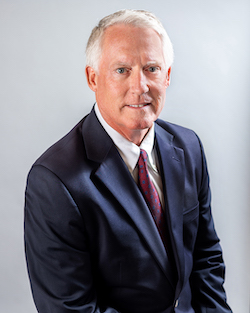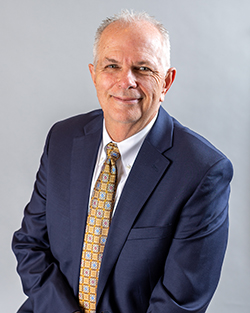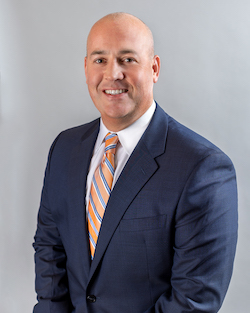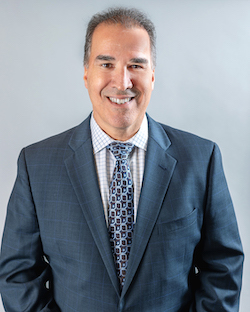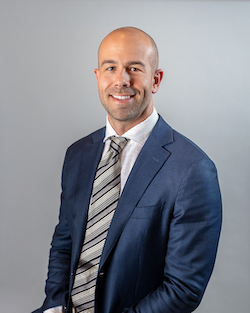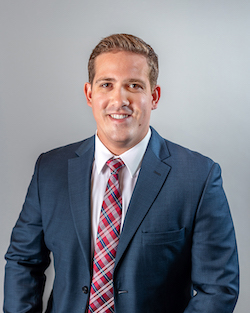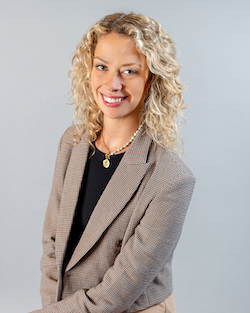Originally seen HERE.
It appears that the United States is emerging from the worst of the pandemic with a substantial portion of the population—including those whose leisure and livelihoods impact the hospitality industry—vaccinated and longing to get back to business and travel for pleasure. According to development executives interviewed by LODGING, some of the painful lessons learned while facing significant challenges informed their business decisions during the worst of times, and some may prove enduring and beneficial in the still uncertain times ahead.
Discussing development issues including dealing with high construction costs, stiff competition among investors flush with previously raised capital to spend, cost-efficient renovation ideas, and deciding whether to build or buy were Philip Bates, TMC Hospitality co-founder and CEO; Kirk Pederson, president of Sightline Hospitality; and Javier Coll, group president, AMResorts Global Business Development. Also, weighing in on the related topic of “reinventing how we think about square footage and the standard of living we can have within them” was Hasier Larrea, the co-founder and CEO of Ori, maker of flexible furniture systems that integrate robotics to transform small spaces, including hotel rooms.
Dealing During the Pandemic
No one was immune from the effects of the worldwide pandemic that upended life as we knew it and familiarized us all with phrases such as essential workers, mask mandates, social distancing, and flattening the curve.
Bates, whose company invests in, develops, and operates real estate projects and related companies around the world, recalls the nearly immediate impact the pandemic had on hospitality, as bookings came to a virtual standstill for many properties. This, he says, caused his own company to re-examine the projects that were underway, and to make some judgments based on previous experience and others based on what they were observing in real-time. He recognized, too, that there might be opportunities to use capital that was already raised to take advantage of the type of market that historically accompanied a recession to build or buy advantageously.
On these thoughts, Bates says, “We got some things right but we also got some things wrong” partly because things were unfolding differently than expected. First, he says, was “the fundamental assumption we had about construction pricing, which historically would go down during a recession.” Instead, costs skyrocketed, as scarce labor and materials, especially lumber, drove up construction costs. A major factor behind this unexpected obstacle he says was, ironically, government subsidies and low mortgage rates that caused an acceleration in building and consumption of labor and materials. Government assistance also enabled many hotels to stay in business when they might have otherwise failed and become subject to “distressed” sales. Between higher construction costs and government aid that enabled struggling properties to avoid default and vulnerability to hardship sales, there were not many bargains, after all.
Making Decisions on Existing and Pipeline Properties
In this emerging environment, Bates recalls, decisions still needed to be made about what to do with existing properties, including those in the pipeline or in various stages of being approved, planned, and constructed prior to the pandemic. “We put several of the projects we were building or renovating on pause, not knowing what kind of economic environment those hotels would open into. Yet, at the same time, we recognized that many of our existing properties were generally outperforming others in their markets—something I attribute to our social group orientation, which brought in families and frontline workers and a variety of groups that still needed to travel, even though business travel itself sort of stopped.”
The decision about which of their projects under development to continue, he says, was made on a case-by-case basis. “It depended on the information that was affecting that project, including its market, the construction pricing, and the progress of that development.”
Approaches to High Building Costs
Pederson and Bates both were reluctant to proceed as planned with building in the pricey construction environment. Bates quickly abandoned thoughts of “value engineering”—that is, cutting costs at the expense of quality—and enlisted the cooperation of their contractor on one of the new-build projects, which he says made it more of a partnership. “We said, rather than put pressure on you to deliver cost savings, we can adjust our contract, so when pricing does come down, you’re incentivized in a way that you give us the best absolute pricing you can, and we can be off to the races.” Observing that material prices are beginning to normalize, he says, “I’m glad we decided to wait rather than bring to market a product that doesn’t do our brands or our investors justice.”
Pederson says one especially innovative response to the challenge of escalating construction costs encountered in the wake of the pandemic was his company’s collaboration with Z Life, a construction-forward developer/builder with which Sightline has partnered to build a Marriott Tribute Portfolio hotel, using Z Life’s pre-engineered semi-modular M8TRIX system that is said to be cost-effective, time-efficient, and sustainable.
He considers his relationship with Weina Zhang in building her company’s first hotel a true collaboration. “Her expertise is in construction, but she depends on me to handle management issues. She calls me and says, ‘I want to do this. You make it happen.’” He says Zhang’s low-cost model, ability to procure materials, and that she had her own core of workers allowed her company to continue through market disruptions in 2020, although the projects moved more slowly due to the scarcity of subcontractors.
Pederson notes that Zhang was also able to secure financing for her projects at a time when there was less capital available for new construction. “Because her cost basis was so low, loan and equity sources were willing to continue working with her through pandemic while a lot of other projects just got stalled.”
Going Forward: Build vs. Convert
Bates believes investors now regard conversions as less risky than new builds, saying, “Right now, about 20 percent of our pipeline is new-built and 80 percent are conversions.” He mentions, too, the pressure developers are now under to invest the hotel capital that was raised before investors retreated to the sidelines. This, he says, is forcing up the price of acquisitions at the same time construction costs are elevated. Pederson agrees, explaining that the competitive asset-buying environment is likely due to the fact that some of these funds were held to take advantage of what they expected to be distressed properties due to low occupancies during the pandemic. “Assets that weren’t that available for acquisition during the pandemic are becoming more available now.”
Coll comments on what he expects the impact of construction delays to be going forward. “This almost 18-month construction delay will translate to fewer new-build hotel openings over the coming years, and more hotel owners turning to conversions and renovation of existing properties to stay competitive. In terms of special challenges, hotel owners and developers may be working with slimmer budgets and/or finding new challenges around financing.”
He also describes some of the advantages of conversion and the types of cost-effective renovations he claims can make all the difference in how properties fare after reopening. “Unlike new-build contracts and development that take several years to finalize, conversions can open much sooner and begin making a return on the investment. Openings can happen within six to nine months on average.”
For more bang for the scarce bucks available for renovation, he offers guidelines to achieve the “wow factor” especially important in the resort niche he inhabits, including a focus on the lobby and main dining areas and adding spa amenities. “By planning strategic, measurable, and small renovations, owners can ensure cost-effective solutions that keep guests and staff safe, and contribute to the resort’s success.”
Looking Forward
Coll identifies factors and trends he considers crucial to industry recovery, starting with enhanced safety and hygiene. “Safety protocols will continue to be at the forefront of efforts to bring guests and employees back to travel.” He says, too, smarter, leaner operations are likely to hasten recovery of individual properties as well as the industry they comprise. “Running a lean hotel operation pre-pandemic was considered good business practice, but running a lean hotel operation post-pandemic is a necessity. Hoteliers must continue to keep a close eye on expenses, labor costs, and operational services to shape the best guest experience and drive revenue, constantly evaluating what they can do with and without to strike the right balance.”
All mention the importance of not backing off on technology that supports the customer experience as well as safety and security. Bates expects “out-of-the-box thinking” that drives technology like contactless check-in and room entry and unique design to be well-received by investors. “Whereas in a normal environment, capital is usually conservative, preferring to stick with the tried and true, I think the post COVID world is a good opportunity for some of the younger developers to get in and make their mark. Generally, I think the hotel developers that are most creative and nimble will be the biggest winners in the quest to find and deliver good opportunities in this challenging environment.”
Coll also mentions the investment he believes the hospitality industry should continue to make in increased sustainability, saying, “The hospitality industry must continue the global movement toward sustainability, understanding the long-term financial gains that green operations can affect.”
Despite the pain of the pandemic, all are hopefully optimistic. Says Pederson, “We were forced to change as a result of the pandemic and I think that’s good for our business.” He says he expects the development pipeline to continue to grow as constructions costs come back down in the coming year, after which projects put on hold will get launched. “I think, too, many who have raised funds are going to shift the focus from buying existing assets to getting into development.”
Of course, it helps that people are beginning to travel, note Bates and Coll. “With increased vaccine rollout, travel passports, and easing restrictions, there is great opportunity for hospitality companies to seize the coming wave of travelers,” says Coll. While all note that the leisure market, most especially the drive-to-leisure market, is leading what Coll calls “revenge travel,” Bates expects business travel to rebound sooner than many others expect. (See sidebar: “Working and Meeting in a Post-Pandemic World.”)
Bates points out that nearly universal vaccination availability—despite underutilization—in the United States will continue to restrict international travel, which he says is likely to bolster demand for American hotels by both travelers and the investment community. “I think this global problem will bode well for investment in the U.S.”
Working and Meeting in a Post-Pandemic World
No discussion of the pandemic would be complete without mentioning how it impacted the prevailing work model, where most employees commuted from home to offices, many of which were in big cities where the cost of living and residing is high. Yet, when all but essential workers were ordered to stay at home, many of those office buildings were shuttered and most of the hotels that remained opened operated with skeleton staffs while adhering to public health guidelines, which, in many areas, dictated shutting down gym and restaurants and pausing meetings. This limitation on places to meet and relax impacted how guests actually used their rooms.
Yet another thing that happened that may shake up office real estate forever is that companies learned that many of their workers didn’t actually need to come to their offices or travel to meetings.
Of the abundance of office space that went unused during the pandemic and whose future value may now be in question, Kirk Pederson, president of Sightline Hospitality, says, “It’s wrong to think people won’t want to use office space at all. People still need to feel comradery, culture, the things that create a company. For those reasons, I think companies will return to working as before, but with more flexibility for people working remotely, offsite—so they may not need as much space.”
Using his own company as an example, Pederson says, “We don’t necessarily meet in our corporate office anymore, because a lot of our employees are spread across the country, working from their homes or hotels.” Yet, because he believes people still need to get together, he expects small corporate regional group meetings—creating demand for hotel rooms and meeting spaces—to gain traction. This, he says, may spark a kind of restructuring of office space as long-term leases expire and business owners relocate to buildings with less space. There may be some opportunities for conversion of office buildings to hotels, he adds.
Again, using his own company as an example, Pederson says Sightline is considering a move to a different type of space, one more appropriate to have meetings with workers now living elsewhere or working remotely. “It would be to more of a retail type space that has meeting rooms and an open coffee shop feel for employees to use. When we need to have meetings, people can still travel from out of town and come in. This includes employees who no longer live in San Francisco.”
Philip Bates, co-founder and CEO of TMC Hospitality, says the impact of the underutilization of offices that promises to continue beyond the pandemic may be felt more once the office leases—which can be anywhere from three to 10 years—begin to expire. “Although the effects on the hotel industry were felt immediately during the pandemic, I think that a more systemic change has taken place in the office sector, one that will become apparent when a lot of those leases start to roll over and they don’t get renewed.”
Like Pederson, Bates believes corporations will rethink the kind of space they need, something that can have implications for hotel investors. “I think corporations are generally going to be trending downward in their overall space requirements, even if they’re growing on an employee base. I think we’ll see subleasing opportunities or people splitting office buildings, where the top is an office and the bottom zone is retail. I believe, too, full-on conversion opportunities of office space will arise.”


